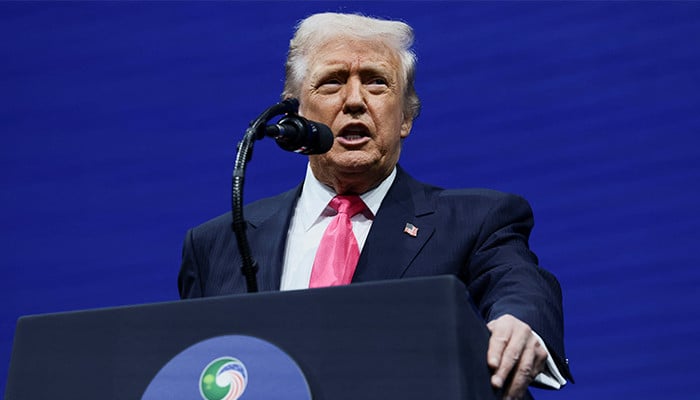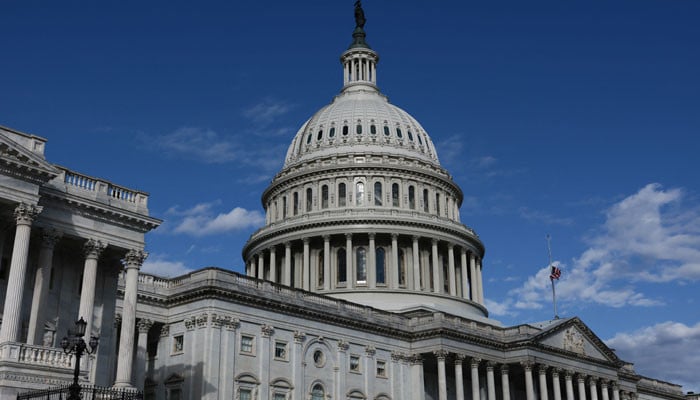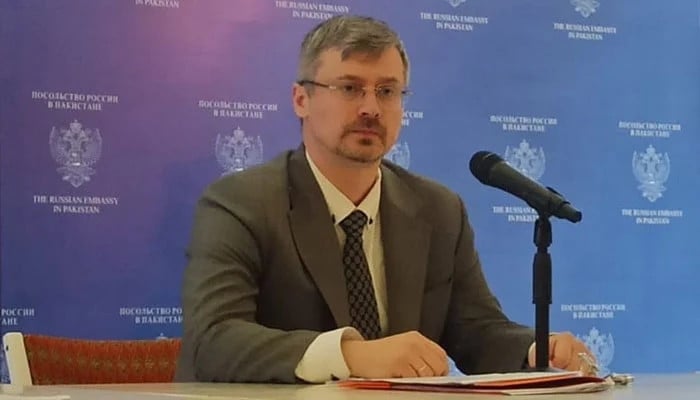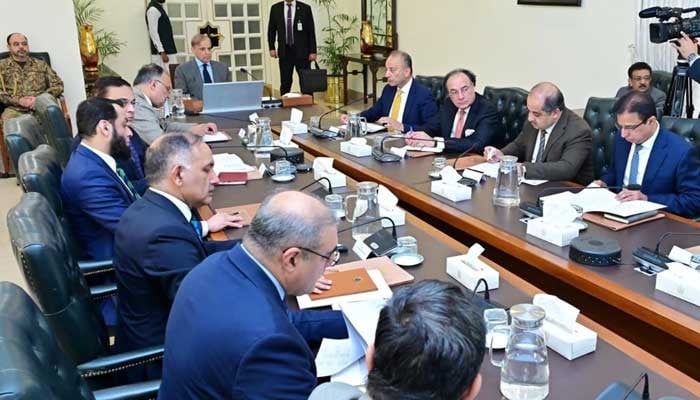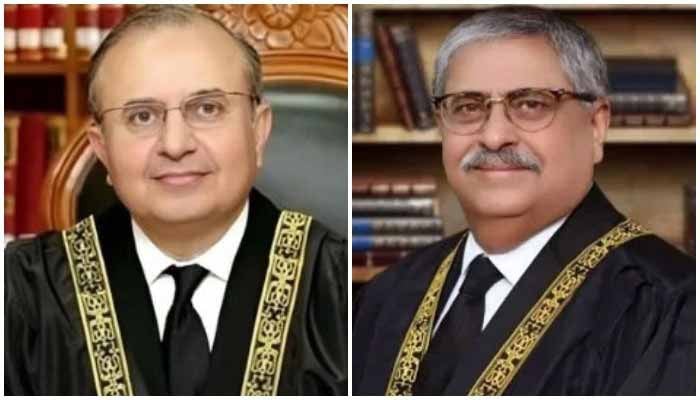
US President Donald Trump speaks as he meets with the White House Task Force on the FIFA World Cup 2026 in the Oval Office at the White House in Washington, DC, US, November 17, 2025. — Reuters
#Trump #okays #breakthrough #Saudi #F35 #jets #deal #eve #MBS #visit
WASHINGTON: President Donald Trump said on Monday that the United States will sell F-35 stealth fighters to Saudi Arabia, a day before Saudi Crown Prince Mohammed bin Salman visits the White House for talks.
“We will be doing it. We will sell the F-35s,” Trump told reporters when asked if Washington would agree to sell the jets to Riyadh at Tuesday’s meeting. “He has been a great ally,” he added.
The sale would mark a significant policy shift, potentially altering the military balance in the Middle East and testing Washington’s praise of Israel maintaining a “qualitative military edge.”
Reuters reported earlier this month that Saudi Arabia had requested the purchase of 48 F-35 fighter jets, a multibillion-dollar deal that cleared a Pentagon impasse ahead of bin Salman’s visit.
The Saudis have long been interested in Lockheed Martin’s fighter. A senior White House official told Reuters before Trump said the president wanted to talk to the crown prince about the jets, “then we will make a determination.”
Trump’s approval comes despite a New York Times report that U.S. officials have raised concerns that superpower rival China could acquire the latest stealth jet technology if sold to Saudi Arabia.
The U.S. has so far only authorized the sale of F-35s to its closest allies, including several European NATO allies and Israel.
Washington pulled Turkey out of the F-35 program in 2019 after Ankara’s purchase of a Russian air defense system raised concerns that Moscow could obtain the aircraft’s technology through the back door.
AI, on the nuclear agenda
The crown prince, widely known by his initials MBS, visits the White House for talks with the US president aimed at deepening decades-old cooperation on oil and security while broadening ties in trade, technology and possibly even nuclear energy.
This will be the crown prince’s first visit to the US since 2018.
Trump is trying to cash in on a $600 billion Saudi investment pledge during Trump’s visit to the kingdom in May. He made a point of mentioning human rights concerns during this trip and is expected to do so again.
The Saudi leader is seeking security guarantees amid regional turmoil and wants access to artificial intelligence technology and progress toward an agreement on a civilian nuclear program.
Pay attention to the defense contract
Washington and Riyadh have long managed the kingdom to sell oil at favorable prices and provide security in exchange for the superpower.
This equation was shaken by Washington’s failure to attack oil installations in the kingdom in 2019. In September, when Israel launched an attack from Doha, Qatar, it said in an attack it had targeted targets belonging to the Palestinian group Hamas.
As a result, Trump signed a defense agreement with Qatar via executive order. Many analysts, diplomats and regional officials believe the Saudis will get something similar.
Saudi Arabia has sought a defense agreement ratified by the US Congress in recent negotiations. But Washington has made this contingent on the kingdom normalizing relations with Israel.
Riyadh has consequently linked the government of Israel’s commitment to the Palestinian state, the most right-wing in its history. Israeli Prime Minister Benjamin Netanyahu, who last month agreed to a Trump-brokered ceasefire with Hamas in Gaza after two years of war, reaffirmed his staunch opposition to Palestinian independence on Sunday.
Trump’s executive order on a defense deal similar to the deal with Qatar would cut short the defense deal the Saudis have sought. But al-Ghishian said it would be “part of the process, a step along the way, not the end of the process.”
A Western diplomat based in the Gulf summed up the dynamic: “Trump wants normalcy and the Saudis want a full defense deal, but the circumstances don’t allow it. In the end, both sides will likely get less than they want. That’s diplomacy.”
Dennis Ross, now former Middle East negotiator at the Washington Institute for Near East Policy, said he expected an executive order that would consult the U.S. and Saudis “immediately on what to do in response to this threat” without Washington committing to actively come to Riyadh’s defense.
He said, “It can play the role of providing various support, replacing weapons, deploying defense missile batteries like THAAD or Patriot, deploying naval forces with a marine unit.”
Make a key deal amid regional rivalry
Riyadh is also pushing for nuclear power and artificial intelligence deals as part of its ambitious Vision 2030 plan to diversify its economy and strengthen its position against regional rivals.
Getting approval to acquire high-end computer chips will be critical to the kingdom’s plans to become a central node in global AI and compete with the United Arab Emirates, which signed a multibillion-dollar U.S. data center deal in June that gave it access to high-end chips.
MBS also wants to strike a deal with Washington on developing Saudi’s civilian nuclear program, part of his efforts to diversify away from oil.
Such a deal would unlock access to U.S. nuclear technology and security guarantees and help Saudi Arabia level with the United Arab Emirates, which has its own program, and arch-enemy Iran.
But progress on the U.S. deal has been difficult because the Saudis have been unwilling to agree to any U.S. terms that would deny them enriching uranium or reprocessing spent fuel.
Ross said he expected an announcement of a nuclear deal, or at least a statement on progress toward one.
